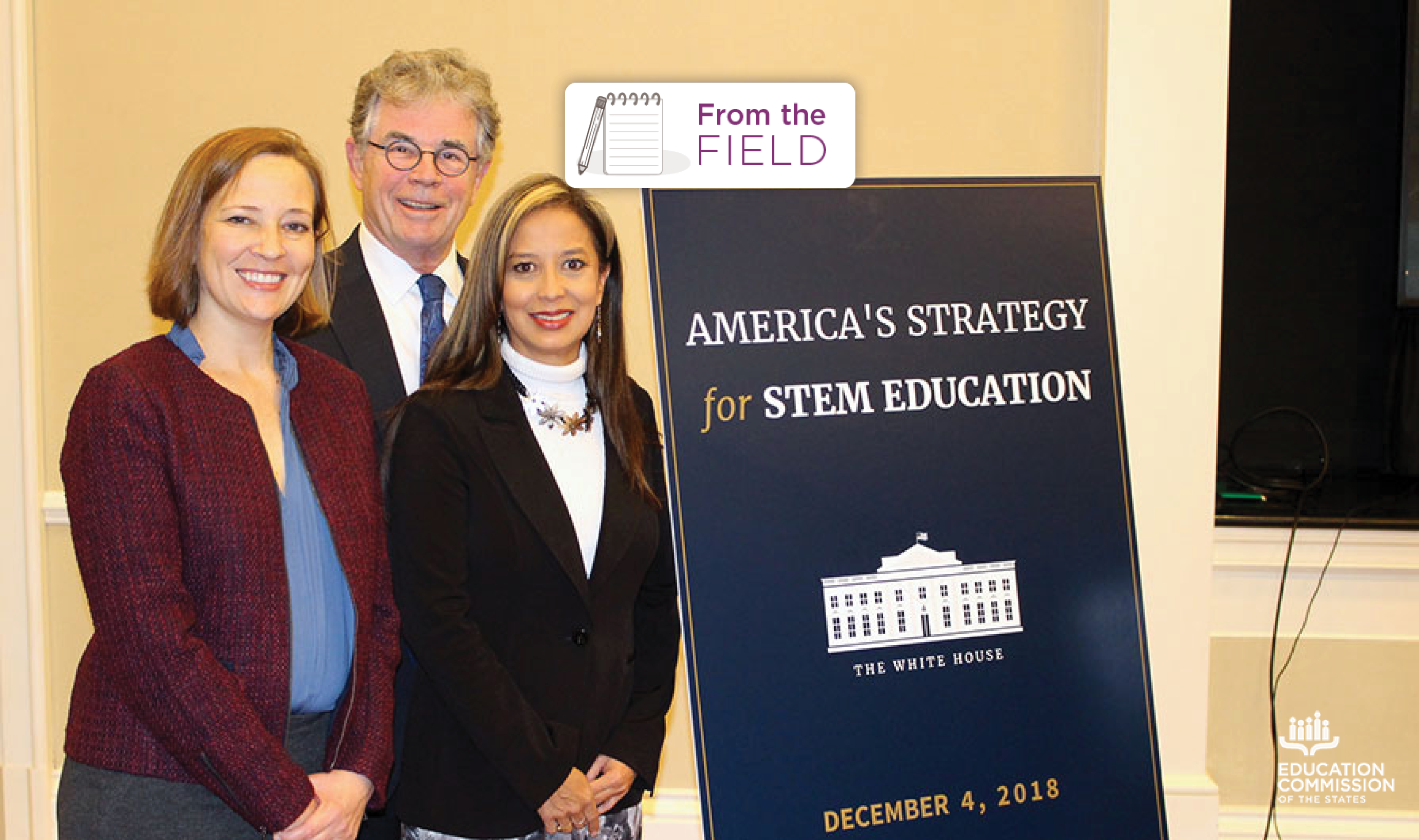States that are looking to broaden access to high-quality, K-12 computer science learning experiences can learn from states that have already experienced some success in computer science policy adoption and implementation.
At Education Commission of the States’ recent Computer Science Policy Academy (generously sponsored by Microsoft and College Board), speakers from Maryland and Washington shared an insider’s look at computer science policies and initiatives in their states. They highlighted strategies that have been particularly successful, as well as challenges that other states looking to further K-12 computer science should be aware of. Below is just a sampling of some of the key strategies shared, and a full policy brief — unpacking successes and lessons learned from these states — is scheduled for release later this year.
Funding. All three states said state funding was critical to policy adoption and implementation efforts. For example, a $5 million line item in the Maryland governor’s budget contributed to new legislation that requires all high schools to offer at least one computer science course, and creates the Maryland Center for Computing Education to support teacher training efforts.. Without this line item, Ali Keane of Gov. Larry Hogan’s office said, it’s likely legislators would have perceived the measure as an unfunded mandate and killed the bill.
Collaboration, alliance-building and negotiating. In each of the three states, various bridge-building efforts have been essential to supporting policy development, adoption and implementation. For instance, because each of Washington’s nine educational service districts doesn’t have the funds to hire its own staff person to provide computer science professional development, collaboration among ESDs to deliver teacher professional development has been critical. Meanwhile, bipartisanship and negotiation were vital to the passage of Maryland’s H.B. 281, which was a compromise between Republican Gov. Hogan’s proposed computer science legislation and legislation put forward by a Democratic legislator before a general assembly with a Democratic majority in both chambers.
Marketing. Andy Shouse of the nonprofit Washington STEM observed that although computer science is an increasingly prevalent component of agricultural operations and other industries throughout the state, the early reaction of many residents outside of metro Seattle was that computer science is “stuff for the kids in Seattle.” The nonprofit organization and other partners in the state have worked hard in recent years to counter that perception and to illustrate how computer science skills are critical throughout the economy.








